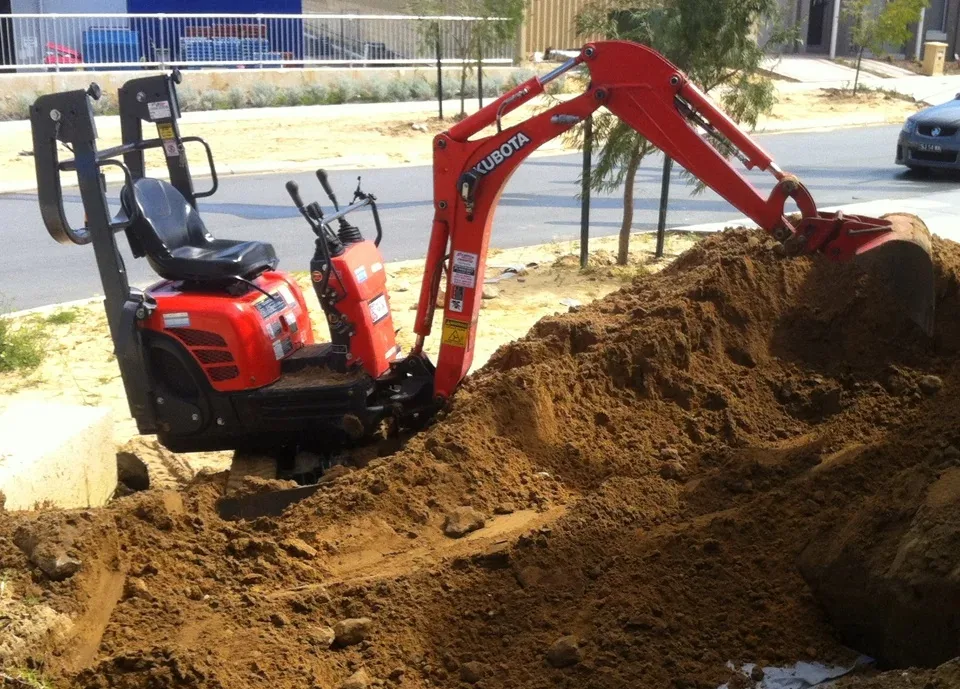Introduction
Mini excavators have become an essential tool in modern construction projects, especially when it comes to excavation in small or confined spaces. From landscaping to trench digging, these compact machines deliver the power and precision required for delicate projects that would be difficult for larger machinery to handle. In urban environments, where space is often limited, mini excavators shine by offering flexibility and efficiency without compromising on performance.
Why Choose Mini Excavators for Excavation?
Mini excavators offer several advantages over their larger counterparts. Their smaller size allows them to access tight spaces like alleys, backyards, or construction sites with limited room. They are also lighter, which means they can be transported easily between job sites, reducing both time and cost. Additionally, their ability to perform various tasks, from digging and trenching to demolishing small structures, makes them versatile in the construction world. If you’re in the market for one, consider searching for a Kubota mini excavator for sale, as it offers reliability and a wide range of attachments to tackle diverse excavation tasks.
Key Applications of Mini Excavators in Excavation
Mini excavators are widely used in various excavation tasks, such as:
- Digging foundations: Perfect for small structures like sheds, garages, or additions to existing buildings.
- Trenching for utilities: Ideal for laying water lines, electrical conduits, or sewage pipes.
- Landscaping: Whether it’s creating garden features, pool excavation, or building retaining walls, mini excavators offer precision and minimal ground disturbance.
- Urban and roadside work: Their compact size allows them to work efficiently in narrow streets or tight urban areas without blocking traffic or disturbing surrounding structures.
Factors to Consider When Using Mini Excavators
Before using a mini excavator, consider the nature of the project:
- Soil type: Soft or rocky soil can impact the effectiveness of the machine and may require specific attachments.
- Excavation site size: Smaller sites may need compact equipment to avoid damaging surrounding structures.
- Attachments needed: The right attachment, such as buckets or augers, is essential to ensure efficiency.
- Operator skill: Experience is critical, as precision tasks like trenching or digging around existing infrastructure require skill to avoid damaging utilities.
Attachments for Mini Excavators
Mini excavators can be equipped with various attachments, which increase their versatility:
- Buckets: Ideal for digging and scooping soil or gravel.
- Augers: Used for drilling holes for posts, planting trees, or digging deep, narrow foundations.
- Hydraulic breakers: Useful for breaking up concrete or rocks.
Selecting the right attachment depends on the specific task at hand. For example, augers would be essential when drilling for fence posts, while breakers are necessary for demolition.
Maintenance and Safety Tips for Excavators
Regular maintenance of mini excavators is crucial for their longevity and performance. Basic tasks like inspecting tracks for wear, checking oil levels, and ensuring hydraulic systems are working properly should be done daily. Additionally, following the manufacturer’s maintenance schedule helps prevent breakdowns.
Operators should be properly trained, not only to maximize the efficiency of the equipment but also to adhere to safety protocols. Excavators can be dangerous if not used correctly, especially in confined areas where precision is critical.
Case Studies of Successful Mini Excavator Excavations
Mini excavators have proven their worth in various real-world projects:
- Residential Renovations: A contractor used a mini excavator to dig a foundation for a new patio. The small size allowed access through a narrow backyard gate, and the machine’s precision helped avoid damaging nearby plants and existing structures.
- Urban Utility Upgrades: A city utility company used mini excavators to replace aging water pipes. The compact size minimized disruption to the community, allowing the project to be completed with minimal road closures.
Conclusion
Mini excavators have revolutionized the way excavation is handled, particularly in small and challenging spaces. Whether you’re working on residential projects or larger urban developments, a mini excavator provides the perfect blend of power, precision, and flexibility. Investing in the right mini excavator can greatly enhance your project’s efficiency and overall success.





